News & Events in Belarus
Lukashenko orders to support companies like POZHSNAB in Borisov
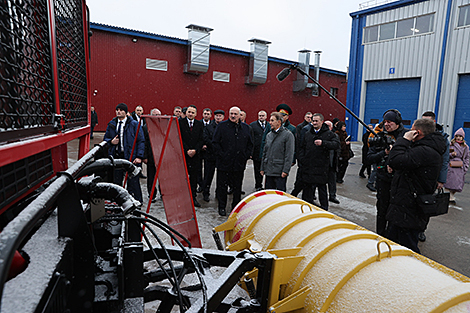
BORISOV, 10 December (BelTA) – Belarusian President Aleksandr Lukashenko has given an instruction to support and promote enterprises like POZHSNAB in Borisov, BelTA has learned.
POZHSNAB is a private business. “What are the prospects? Are its products in demand?” the head of state asked.
The answer was in the affirmative. The enterprise offers turnkey solutions that include research, design and development, operation of equipment. POZHSNAB produces a broad range of rescue vehicles: from small patrol trucks to huge aerial fire trucks, other high-altitude fire and rescue equipment. The company’s products are sold abroad, including to Russia, Zimbabwe, Kazakhstan and Azerbaijan.
Aleksandr Lukashenko was briefed on the state and prospects of the enterprise, visited the design bureau and production shops. The president was told that specialists are developing new models of equipment literally from scratch, and all electronic components and software are domestic, not to mention large nodes that are manufactured at Belarusian enterprises.
“The demand is crazy. This means we can scale it up,” Aleksandr Lukashenko remarked.
He emphasized that this is a fundamental issue. For example, when drafting certain programs, one should not invent anything. “We have a great number of such [research and production] facilities as yours. In this regard, if you need something ... Let's help private companies the way we help state-run enterprises,” the Belarusian leader said.
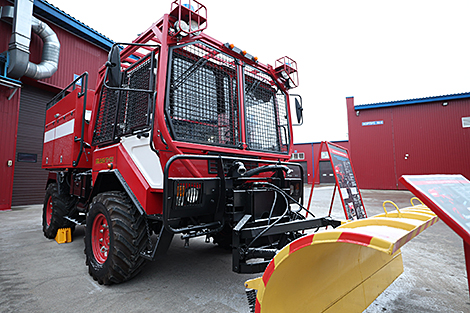
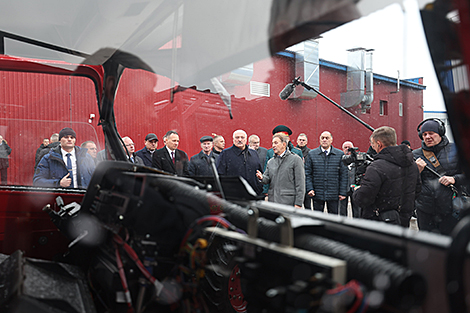
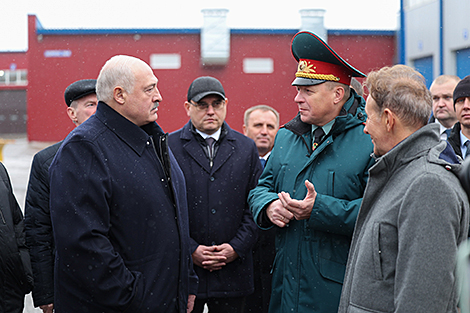
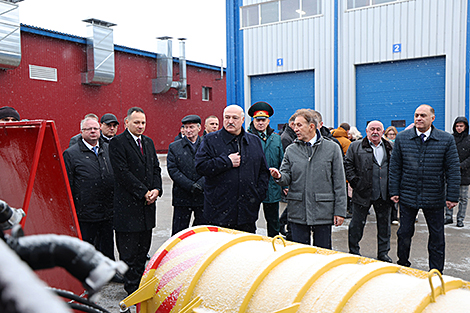
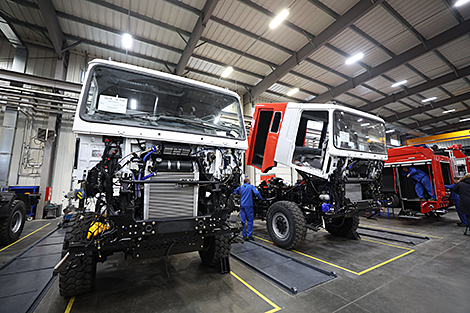
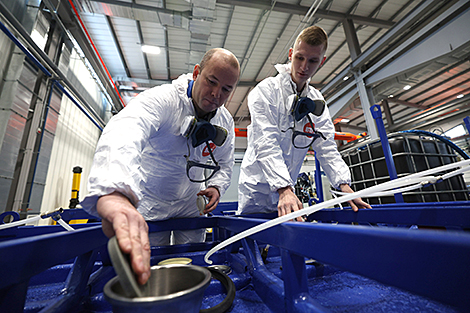
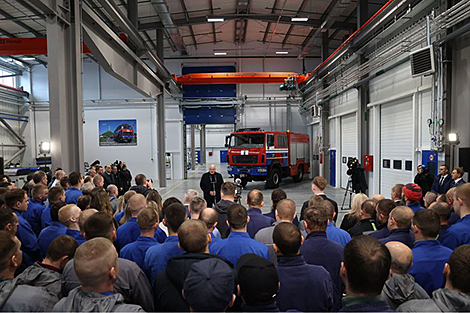
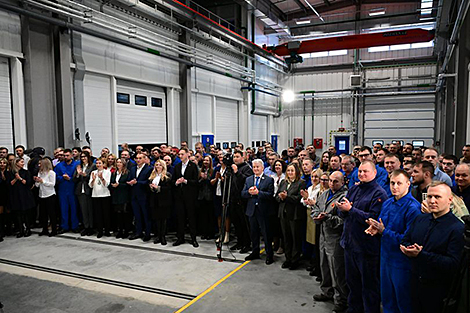
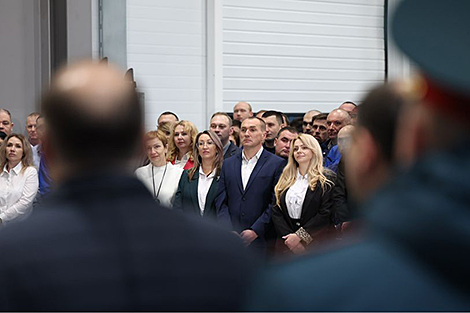
The director of the enterprise, Oleg Deryabin, showed the president samples of existing models and those under development. According to him, the path from design to a sample takes less than a year. Moreover, the models are tested right there, in various extreme conditions close to real ones. Now the company’s facilities occupy 20,000 m2, and with the commissioning of a new workshop this year, the area has expanded into 27,000 m2. About 250 people work there. The availability of qualified personnel allowed the enterprise to carry on even after Western companies discontinued partnerships. The staff was fast on their feet, they managed to replace or improve the existing technologies and to design many new models of equipment and machines.
“Any issues with the government?” the president asked the director. “None,” he answered.
According to Emergencies Minister Vadim Sinyavsky, the Emergencies Ministry closely cooperates with this enterprise. Since its inception, more than 1,300 units of various equipment have been purchased, which currently makes up almost half of all special-purpose equipment of the Emergencies Ministry.
The head of state asked whether POZHSNAB inflated prices given that it was a monopolist on the Belarusian market. “Is it cashing in on this situation?” Aleksandr Lukashenko asked the minister. The minister replied: “There are issues, but we are working on them.” The president urged to find a balance in matters of cost, because, on the one hand, the Emergencies Ministry as a state structure wants reasonable prices, but the interests of the enterprise cannot be ignored or disregarded. Vadim Sinyavsky replied that Belarus has built a unique and effective public-private partnership model. And his counterparts, specialists from other countries, have asked him about this more than once: “They don't understand how this works. MAZ is a state enterprise, POZHSNAB is a private enterprise, and the Emergencies Ministry is a state agency that cooperates with both of them...”
“It's very simple: it is ‘dictatorship’,” Aleksandr Lukashenko noted with a bit of humor.







 print version
print version make home page
make home page add to bookmarks
add to bookmarks

